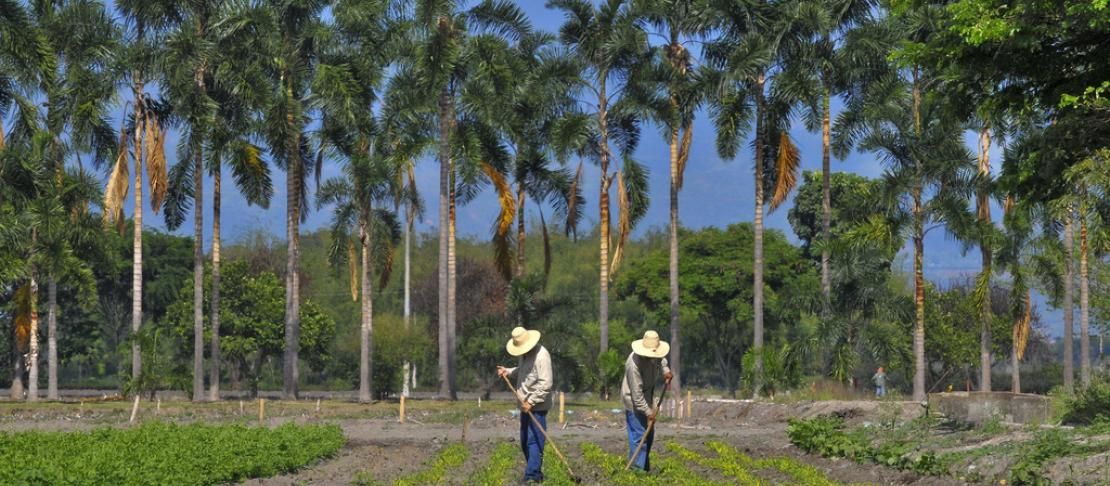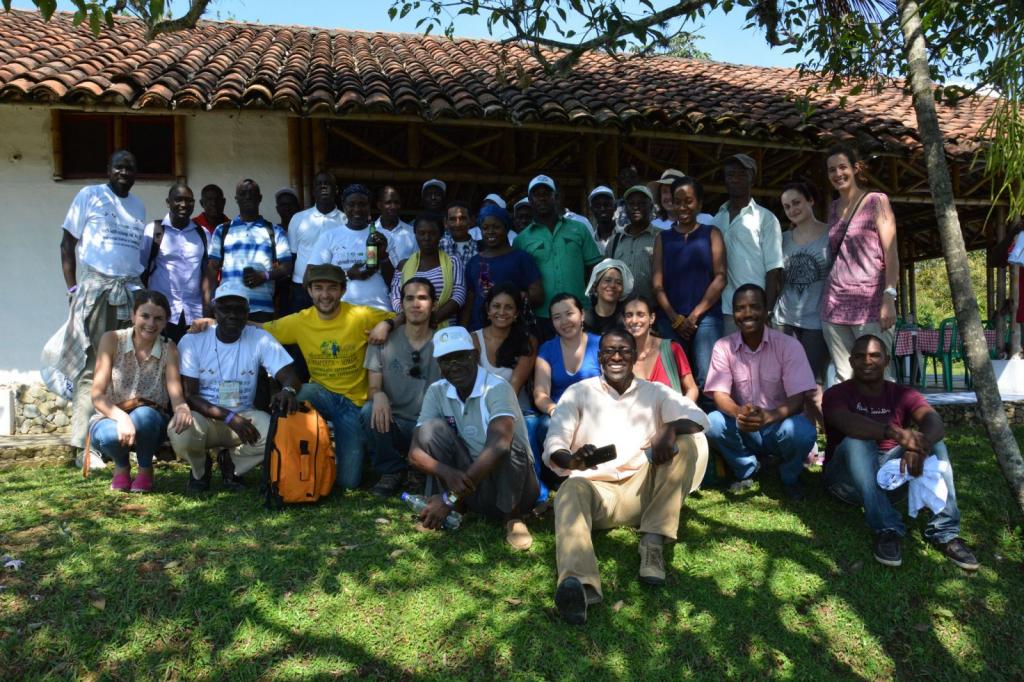Benefits of cooperation: Lessons from Colombian farmers’ associations

In Colombia, farmers' associations help link farmers with funded research centers give farmers stronger influence on research and policy. Following this example, farmers in other countries can have greater control over their future - especially their resilience to climate variability.
There is a popular quote from an unknown source that says “If you want to be incrementally better: Be competitive. (But) If you want to be exponentially better: Be cooperative.” With a few words, this quote says almost all that need to be said about the benefits of cooperation and tacitly surmises that where competition ends, cooperation begins.
And probably only few places has this cooperative spirit been as well displayed than among the Colombian farmer’s associations. For the Colombian farmers, the reality that working together brings more success both individually and collectively have instructed the forming of many strong associations – based on the different crops they produce – and producers platforms that look after their interest and attend to their most important needs – especially in facing increasing climate variability.
Recently, the Colombia’s Presidential Agency for International Cooperation (APC) organised a South-South Cooperation Exchange week in collaboration with the CGIAR Research Program on Climate Change, Agriculture and Food Security (CCAFS). This exchange brought together representatives from three African countries – Ghana, Kenya, and Senegal with Colombian farmers. The Africans were impressed to see the degree of cooperation among Colombian farmers and the strong platforms they have been able to build.
Not only have the farmers built platforms that give them stronger voices and influence, but they have also been able to build a scientific base that serve their needs through climate adaptation research and the breeding of drought- and disease-tolerant crops that give good yields despite erratic rainfall, the El Niño/La Niña effect and other climate variability.

In a south-south exchange, colombian and african farmers met in colombia to exchange ideas and experiences. Photo: J. Urrea (CCAFS)
In one of those researches, the Federación Nacional de Cultivadores de Cereales y Leguminosas (FENALCE) – National Federation of Grains and Beans Producers – is currently working with CCAFS/CIAT to breed high yielding, disease- and drought-tolerant varieties of maize that are well adapted to the changing climatic conditions of the different regions, in six regions of Colombia. This research is carried out at the different research stations owned by the association and partly financed by them.
The same story goes for the Federación Nacional de Arroceros (FEDEARROZ) – the National Rice Producers Association, which is part of a collaboration to fund research for better yields, pest and disease tolerance, and adaptation to climate variabilit. A strong extension program helps make information on improved practices available to their members, as well as to the growers and others in the rice value chain.
On their own part, the Asociación de Cultivadores de Caña de Azúcar de Colombia (ASOCAÑA) – Colombian Sugarcane Growers Association – work together, through a strong value chain, with the sugar and ethanol mills to establish a research institute called Centro de Investigacion de la Caña de Azúcar de Colombia (CENICAÑA), which has done research on sugarcane for over 30 years. This research centre, financed mainly by growers and the industry, works solely to serve the needs of both partners.
A visit to the centre during the exchange week between the Colombian and African farmers showed some of the advances in their sugarcane research program – especially in the area of breeding. This includes breeding for increased sugar content; for disease-resistance, drought-tolerance, water-efficiency and reduced water footprint, and for sugarcanes that are easier to process for milling by the sugar and ethanol mills.
And, in the end, for the impressed African experts, this is a strong lesson they intend to take back to their respective countries. It is a practice they hope to recommend to their governments and wish to replicate among their numerous smallholder farmers who many times toil much and get little. And the lesson, according to another quote from a former US President Benjamin Franklin, is basically that “if they do not hang together, they will all hang separately”.
Oluwabunmi Ajilore is a visiting researcher at the International Center for Tropical Agriculture (CIAT) and science communicator for CCAFS Theme 1.



